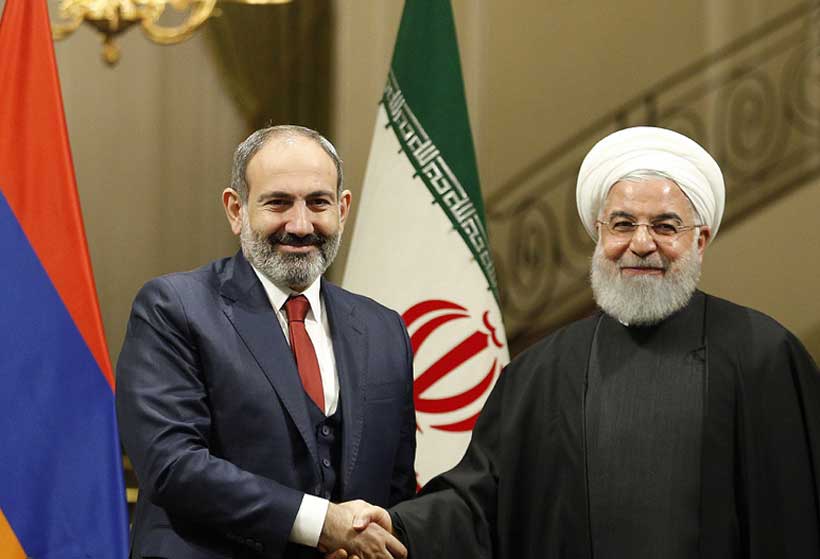Armenia and Iran Millennia-Old Partnership Reaffirmed: Strategic Bonds Beyond Politics

Armenia Affirms Enduring Bond with Iran Beyond Political Calculations
In a recent statement, a high-ranking Armenian diplomat emphasized the country’s unwavering commitment to its longstanding partnership with its southern neighbor, underlining that this relationship holds deep significance and transcends transient political agreements. The official stressed that such ties are anchored in a history stretching back millennia and should be preserved as a resilient legacy for future generations.
This declaration arrives amid evolving regional dynamics and recent agreements involving neighboring states, highlighting the importance of sustained, stable cooperation between these two nations. The message conveys a clear intent by Armenian leadership to safeguard this bilateral relationship from being compromised by external political pressures or bargains.
The emphasis on continuity and strength in the bilateral relationship reflects the broader strategic calculus of Armenia, which views this partnership as vital to its national interests and regional connectivity.
Historical Continuity Shapes Modern Partnership
The foundations of this bilateral relationship are deeply historical, with cultural and economic exchanges dating back thousands of years. Over time, despite changing geopolitical landscapes in the region, both parties have maintained their connections grounded in mutual respect and shared interests. This continuity forms the bedrock of contemporary cooperation and dialogue.
Recognizing the durability of these ties, Armenian officials advocate for their transmission to subsequent generations in a manner that enhances their resilience and adaptability. This approach underlines a commitment not only to preserving historical bonds but also to ensuring that the relationship remains dynamic and mutually beneficial in a rapidly evolving international environment.
The sentiment expressed reflects a diplomatic vision that values long-term stability over short-lived transactional arrangements, thus positioning the partnership as a cornerstone of regional equilibrium.
Strategic Importance Amid Regional Developments
Recent regional agreements have reshaped the geopolitical environment of the South Caucasus, prompting both reassessment and reaffirmation of established alliances. Within this context, the relationship in question stands out as a key element of Armenia’s foreign policy strategy. It serves not only as a link to vital trade and transit routes but also as a strategic counterbalance in the area.
The reopening and development of transport corridors connecting to this neighboring country are projected to improve Armenia’s access to important markets and enhance regional economic integration. This facilitates greater connectivity to broader Eurasian networks, underscoring the pragmatic dimension of the partnership beyond cultural historical affinities.
Moreover, the relationship’s strategic nature was underscored by assurances that no major national decisions would be undertaken without consultation, reflecting a bilateral respect that reinforces trust and cooperation in the face of complex regional challenges.
Preservation of Sovereignty and Regional Stability
At the heart of this diplomatic stance lies a firm commitment to the principles of sovereignty and mutual respect for territorial integrity. The dialogue between the two governments affirms their common interest in maintaining a stable, peaceful neighborhood. This stance involves careful consideration of each other’s security concerns and sensitivities.
Such an approach acts as a safeguard against any attempts to exploit the relationship for political leverage or to subject it to external manipulations. By clearly separating their enduring partnership from temporary geopolitical contests, these nations aim to foster a durable framework of cooperation that contributes positively to regional stability.
In this light, the partnership transcends mere political convenience and emerges as a pillar of continuity amidst an unpredictable regional landscape.
The Path Ahead: Strengthening Bonds for Future Generations
Looking forward, the emphasis remains on reinforcing and expanding the depths of this bilateral relationship. The focus includes not only political alignment but also economic collaboration and cultural exchange, ensuring that the multifaceted bonds grow stronger and more resilient.
This vision underscores the responsibility shared by both countries to nurture the relationship as a legacy for those to come. By doing so, they seek to build a bridge of cooperation insulated from disruptive external influences and able to adapt to future challenges and opportunities.
The clear articulation of this enduring partnership signals a diplomatic maturity and a shared strategic foresight that speaks to the importance of historic continuity, strategic necessity, and mutual respect as pillars of international relations in the region.
